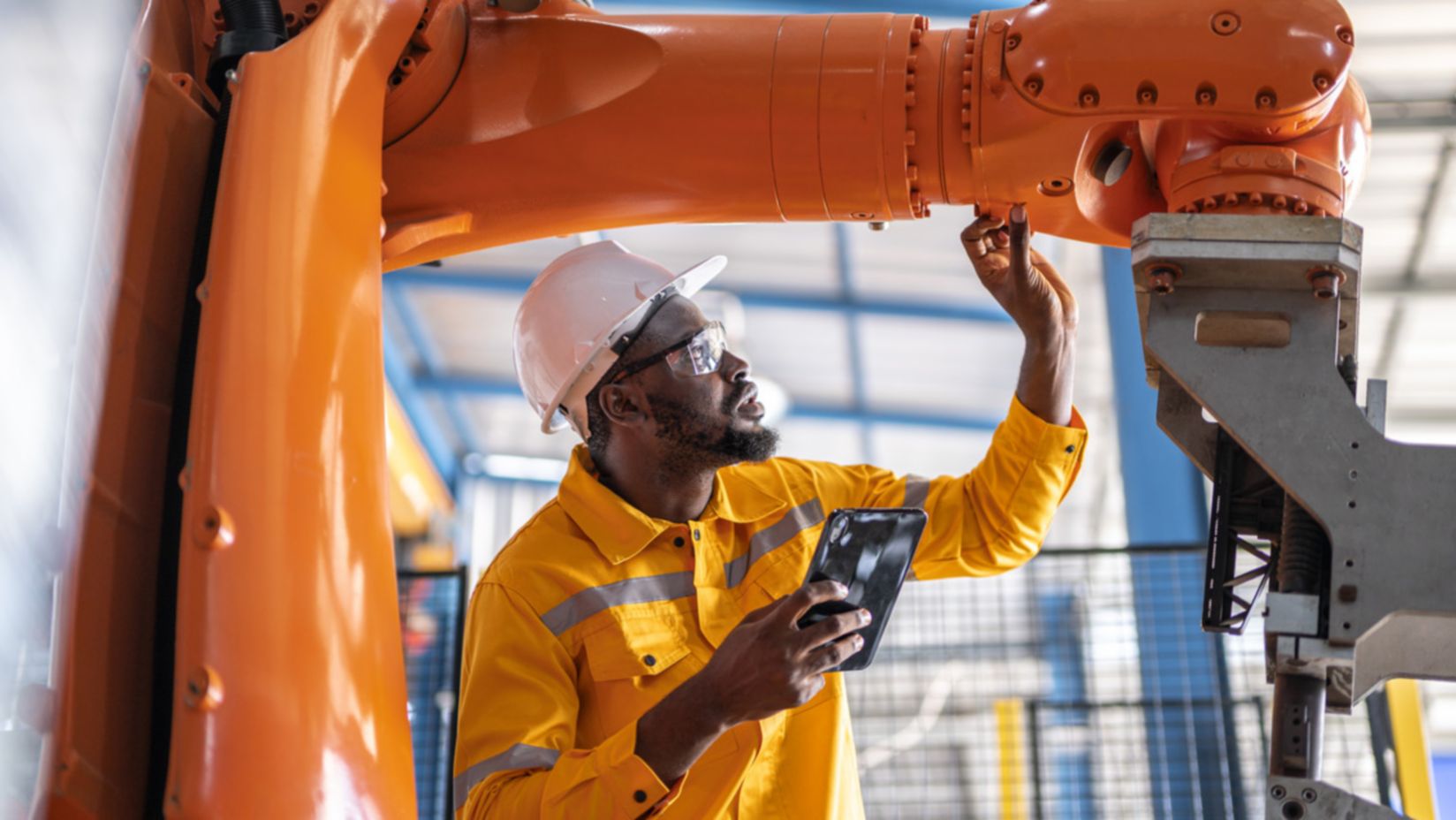AI-Ready Manufacturing: Why Digital Infrastructure Is Key to Success

With AI transforming manufacturing, real-time data processing and predictive analytics come into play. Discover how hyperconnected digital infrastructure can help manufacturers leverage these technologies to stay competitive and resilient.
The shift of manufacturing into the digital age is rooted in the broader Industry 4.0 framework, which integrates advanced technologies like AI, industrial IoT (IIoT), cloud computing, and cybersecurity. This information technology and operational technology (IT-OT) convergence brings the digital and physical realms together, driving productivity, resilience, and innovation across sectors that rely on interconnected cyber-physical assets.
The growing demand for digital infrastructure in manufacturing
As manufacturers progress from smart factories to fully automated dark factories, the industry is becoming increasingly data intensive. By 2028, global data creation is expected to exceed 394 zettabytes, much of which will come from manufacturing processes. This data explosion requires manufacturers to invest in advanced digital infrastructure capable of storing and processing vast amounts of information to enable them to make data-driven decisions
in real-time.
Add to that, flexible and secure solutions, such as hybrid multicloud strategies and edge computing, are needed to support new technologies and resilience of the infrastructure against evolving industry challenges.
In another instance, manufacturing enterprises looking to advance sustainability goals are likely to leverage digital twins, as part of the infrastructure, to simulate and optimise operations, which can result in reduced resource consumption, less waste, and increased energy efficiency.
Scaling operations with hybrid cloud and edge computing
In ensuring operational continuity and efficiency so that businesses can scale while keeping mission-critical workloads secure, hybrid multicloud solutions can be an infrastructure approach. Hybrid cloud provides manufacturers the strengths of both public and private clouds while integrating edge to cloud—where data is generated at the edge and processed andAstored in the cloud—to host sensitive workloads closer to production sites.
A hybrid multicloud solution not only reduces latency, maintains control over data, and ensures compliance with data residency laws, but also aligns with the growing trend of decentralised manufacturing. By enabling localised data processing and decision making, decentralised models support more agile and efficient production, allowing manufacturers to adapt quickly to shifting demands and disruptions.
Improving efficiency and reducing downtime
In AI-driven manufacturing, businesses aim to reduce downtime and optimise production schedules to maintain profitability. One of the strategies to achieve this is predictive maintenance. Powered by real-time data from connected devices, it lets manufacturers anticipate and prevent equipment failures before they occur. It is estimated that predictive maintenance can reduce machine downtime by up to 50% and extend the lifespan of equipment by 20-40%. Again, a robust digital infrastructure that supports edge computing and real-time analytics is needed to realise these benefits.
Overcoming security challenges in AI-driven manufacturing
As manufacturers embrace AI and IIoT, the threat landscape is getting more complex. According to IBM’s 2024 X-Force Threat Intelligence Report, the manufacturing industry has been the number one target for cyberhackers looking to exploit vulnerabilities in connected devices and AI systems. One contributing factor is the convergence of IT and OT, as OT assets that were traditionally air-gapped are now part of a larger attack surface, increasing exposure to potential threats. These attacks can disrupt production lines, steal sensitive intellectual property, and compromise operational data.
While addressing the challenges of a multicloud environment, manufacturers also need a digital infrastructure that balances agility and security. Pairing hybrid multicloud solutions with robust security measures can effectively safeguard data and applications. AI-based threat detection and automated incident response play a crucial role in protecting manufacturing environments from sophisticated cyber threats and ensuring that production processes remain resilient and secure.
The case for multicloud solution in manufacturing
Manufacturers are increasingly adopting multicloud strategies as they recognise the need to diversify their infrastructure. With multicloud, companies can choose the best cloud provider for each workload to reduce dependency on a single vendor and ensure greater flexibility. For AI-driven manufacturing, multicloud provides the ability to optimise performance and control costs, even as infrastructure requirements for applications differ.
For instance, manufacturers can run data-intensive AI workloads on public clouds while keeping mission-critical data in a private and controlled environment. This approach ensures compliance with data sovereignty regulations, particularly when operating across multiple regions, and provides redundancy to mitigate the risk of downtime. As AI and IIoT technologies continue to evolve, the multicloud model will be essential for businesses looking to stay ahead of the curve.
How Telstra supports manufacturing
As manufacturers navigate the complexities of digital transformation, a resilient, secure, and scalable digital infrastructure is essential. Telstra supports this journey with a global network of over 600 managed, partnered, and resell data centres across 37 countries, designed with a strong focus on sustainability by being powered with 100% renewable energy. Combined with Telstra’s advanced edge computing capabilities, manufacturers can process data closer to production sites and ensure low-latency connectivity, seamless operations, and real-time decision making.
Speak with us now.


